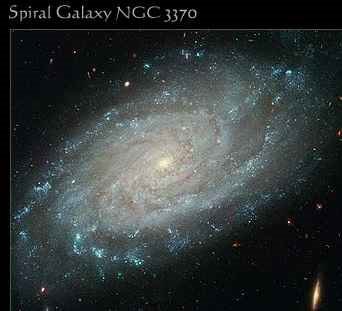Atheism Is Not Scientific
According to the dictionary, atheism is "the doctrine or belief that there is no God.” My own experience with atheists leads me to believe that they are 100% sure that there is no kind of Divine Being. They seem to use science as a means to explain why he they are sure there is no God. The irony is in science nothing is for sure.
Science is wonderful – it’s a “systematic knowledge of the physical or material world gained through observation and experimentation” (again, from the dictionary). Science has allowed us to understand much about biology, physics, chemistry, and so on. Science allows us to form theories as to how one why things happen.
But there are some things science can't explain. Basic fundamental questions are beyond the scope of science, such as "why are we here?" and “how did we get here?". These can only be answered through philosophy and religion. As far as science is concerned, these are invalid questions. Sure, scientists can come up with theories about how the universe started -- the Big Bang, multiple dimensions, string theory, multiple universes -- but even the most sophisticated theory falls short of explaining who or what started all.

Since there is no way to prove scientifically who or what started our existence, then there is an equally likely chance, as far science is concerned, that there is or is not a God or Divine Being. This is indicated by the middle bar on the graph. As a requirement, those who subscribe to monotheistic religions such as Christianity, Judaism, and Islam, must believe as fact that there is a God. This extra element that boosts a religious person beyond the 50-50 mark of science is known as faith.
An atheist not only rejects faith, but also fails to scientifically prove that there is no God. It's almost as if they had some kind of anti-faith that makes them so strongly believe that there is no God. From the atheists I have met who wholeheartedly reject the idea of a God, it seems that there is some underlying reason for it. Some seem to be frustrated with organized religion. Others seem to have had some sort of loss in the family or some other tragedy in their life that lead them to believe that "if there was a God, He wouldn’t let this happen.” For them, it seems, atheism is emotional and personal. It is ironic how they use science to rationalize their feelings.
There also seems to be atheists that believe that a Divine Being is unnecessary, and reject God on a philosophical basis or perhaps they simply find it inconvenient to believe in God. It is my impression, however, that these atheists are closer to agnostics - as “pure” scientists should be.
Since science can do no better or no worse than agnosticism, that leaves many scientists with a dilemma - should they believe in God or not? Blaise Pascal (you may be familiar with his triangle) argues that it's only logical for a person to believe in God. Pascal's Wager, as it has come to be known, posits that it is a better "bet" to believe that God exists than not to believe, because the expected value of believing (which Pascal assessed as infinite) is always greater than the expected value of not believing. Although Pascal used it as an argument for Christianity, it can more generally refers to any kind of belief in a Divine Being. If one were to believe in God solely because of this Wager, then it would not really constitute a true belief. It would, however, strengthen the argument that atheism is a belief that is not based on science.



2 Comments:
Great points Saj. I see that too - the fact that being anti-God can become a religion in and of itself.
About Pascal - doesn't his triangle fail to account for the fact that choosing one faith may still land you in hell, since a different faith may be the correct one? I.e. it's not really a black or white, 'believe in God' vs. 'don't believe' wager, as he frames it. You could find it reasonable to be on the "there is a God" side yet then discover that you still have thousands of faiths to have to choose from - and a wrong choice could prove costly and land you in the heap of trouble you originally were trying to avoid.
Science is fundamentally based on observation. You can't really observe God though, He's not physical. And what's with atheists thinking 'God wouldn't do that if He existed'. Doesn't make sense, are they defining God themselves? It doesn't work that way...God doesn't really have an exact definition in any language or feeling. Science will never be able to observe Him because of that fact.
Post a Comment
<< Home